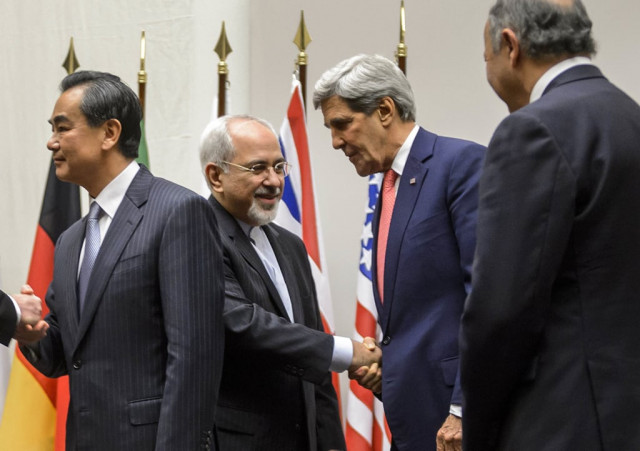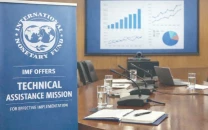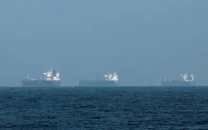New order
Deal between Tehran and the P5+1 opens up the doors for an era of new relations between Iran and the West.

The agreement can also serve as a lesson to Pakistan on the importance of being pragmatic rather than sentimental while formulating foreign policy and in relations with countries considered antagonists. PHOTO: AFP/FILE

The pact between Iran and the United States (US), France, Germany, Britain, China and Russia promises to make the region a safer place. Relations between the US and Iran have been strained since the 1979 Islamic Revolution, and grew still more bitter under President George Bush, elected to power in 2000. President Obama has indicated since 2008 that he wished to change this, with the election in Iran of liberal President Hassan Rouhani helping matters along. The Iranian Supreme Leader, Ayatollah Ali Khamenei, who had backed Rouhani, has endorsed the deal though some opposition is expected from hard-line elements within the country. Israel, which has an openly acrimonious relationship with Iran, has also made it clear it is not pleased at all, and will be taking up the matter with Washington.
Such dissent is, of course, not unexpected. But in the larger context of things, the agreement reached has considerable significance. It opens up the doors for an era of new relations between Iran and the West, pulling that country back into the mainstream. And it also has implications for Pakistan which this year reached an agreement with Iran to pipe in much needed gas from that country. The deal now reached over the development of Iran’s nuclear programme makes it more likely that sanctions may not be slapped on that project. This, of course, would be good news for all of us. The agreement can also serve as a lesson to Pakistan on the importance of being pragmatic rather than sentimental while formulating foreign policy and in relations with countries considered antagonists — a lesson much needed at this point in time.
Published in The Express Tribune, November 26th, 2013.
Like Opinion & Editorial on Facebook, follow @ETOpEd on Twitter to receive all updates on all our daily pieces.














COMMENTS
Comments are moderated and generally will be posted if they are on-topic and not abusive.
For more information, please see our Comments FAQ